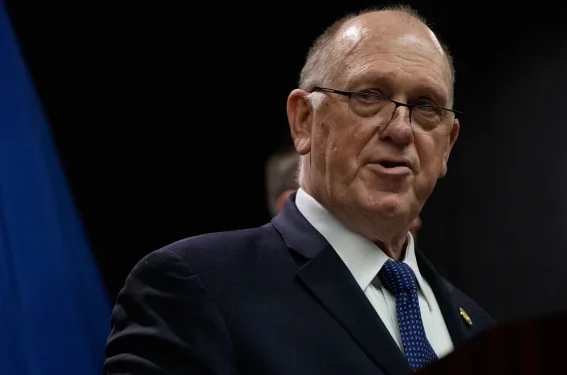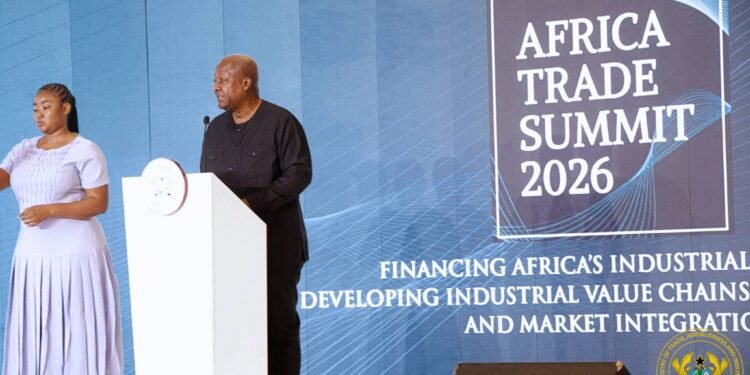The Ministry of Energy and Green Transition has officially withdrawn the previously mandated unitisation directives between Springfield Exploration and Production Limited (Springfield) and Eni Ghana Exploration and Production Limited (ENI).
The directives, which were initially issued by the Ministry of Energy in 2020, required a compulsory unitisation between the two oil companies concerning the Afina-1X Discovery and the Sankofa Cenomanian Oil Field.
In his statement, Hon. John Abdulai Jinapor, the Minister for Energy and Green Transition, explained that the Ministry had carefully considered the Tribunal’s conclusions regarding the procedural flaws of the initial unitisation process.
“The Tribunal found that the issuance of the directives breached the Petroleum Agreement, and identified multiple procedural issues in the implementation.
“While the concept of unitisation itself was not deemed inherently unlawful, the process in which it was applied was flawed.”
Hon. John Abdulai Jinapor, Minister for Energy and Green Transition
This announcement follows a comprehensive review of the Arbitral Award SCC Arbitration U2021/114 (ENI & Vitol v. Ghana & GNPC) dated 8th July, 2024.
The Ministry’s decision also comes after receiving a legal opinion from Ghana’s Attorney General and Minister of Justice, which took into account the Tribunal’s analysis.
The Unitisation Directives were meant to combine the resources from the Afina-1X Discovery and the Sankofa Cenomanian Oil Field to streamline the development and maximize the value of the reserves.
However, the Tribunal’s findings raised concerns over the method by which the directives were enforced.
The Tribunal, which examined the case thoroughly, outlined several critical issues with the initial directives that led to their eventual withdrawal. One of the main findings was the absence of a statutory trigger for unitisation.
According to Section 34 of the Petroleum (Exploration and Production) Act, 2016 (Act 919), and Regulation 50 of the Petroleum (Exploration and Production) (General) Regulations, 2018 (L.I. 2359), unitisation should be based on certain conditions being met.
The Tribunal ruled that these conditions were not satisfied at the time the directives were issued. This lack of a statutory trigger rendered the implementation of the directives procedurally flawed, which was central to the Ministry’s decision to withdraw them.

Additionally, the Tribunal criticized the arbitrary determination of initial tract participation between the two companies.
The allocation of participation interests was found to be unsupported by sufficient evidence, raising further doubts about the fairness and transparency of the process.
The Tribunal argued that the allocation process lacked clarity and justification, making the directives inherently unfair to the parties involved.
Energy Minister Commits to Upholding National Interest

Despite these procedural issues, the Ministry acknowledged that unitisation, as a concept, holds significant potential for the equitable and efficient development of Ghana’s petroleum resources.
The decision to withdraw the directives does not signal a complete abandonment of the unitisation process but rather reflects the need for a more legally sound approach.
“We acknowledge that unitisation could play an important role in the development of our oil and gas resources.
“However, it is essential that the process is done correctly, in line with the legal framework, to ensure that it serves the national interest and promotes fairness among all stakeholders.”
Hon. John Abdulai Jinapor, Minister for Energy and Green Transition
The Minister further explained that the withdrawal of the directives does not preclude the possibility of issuing new directives in the future.
“The Government of Ghana retains the power to issue new directives should future evidence indicate that unitisation is indeed necessary for the effective and equitable development of our petroleum resources.”
Hon. John Abdulai Jinapor, Minister for Energy and Green Transition
Hon. Jinapor added, “We remain committed to making decisions that are in the best interest of the nation.”
The withdrawal of the unitisation directives marks an important development in Ghana’s ongoing efforts to manage its petroleum resources effectively.
The decision underscores the Ministry’s commitment to ensuring compliance with the legal and regulatory framework governing the oil and gas sector.
The Ministry of Energy and Green Transition made it clear that it will continue to work closely with all stakeholders to advance Ghana’s petroleum sector while maintaining a balance between resource development and legal compliance.
“Our goal remains to create a conducive environment for investments in the upstream petroleum sector, with a focus on transparency, fairness, and legal integrity.
“We look forward to continuing our collaborative efforts with all partners to ensure the sustainable development of Ghana’s oil and gas resources.”
Hon. John Abdulai Jinapor, Minister for Energy and Green Transition
The withdrawal of the unitisation directives marks a significant development in Ghana’s oil and gas industry. While the government maintains its right to enforce unitisation in the future, any such directive must align with the Petroleum Act and relevant regulations.
The decision also reflects Ghana’s commitment to legal and regulatory compliance, which is essential for sustaining investor confidence in the country’s upstream petroleum sector.
READ ALSO: Ghana’s Household Spending to Surge to GH¢129.7bn in 2025– Fitch Report























